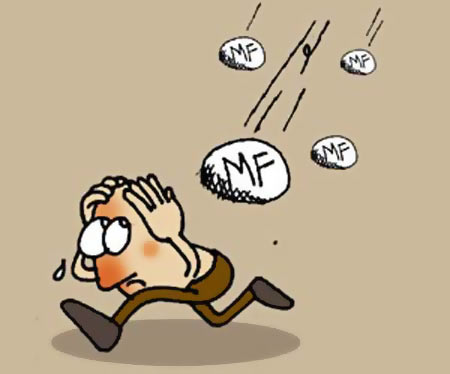
If a fund manager moves on to another fund or resigns from the concerned asset management company, is that a sign to sell your holdings in the fund or discontinue your SIP? Read on...
If you own a fund that has recently had a manager change, the good news is that you can take your time to size up the situation; the value of the fund's basket of holdings won't be affected overnight. That stands in contrast with publicly traded stocks, where the departure of a high-profile CEO has the potential to shake up the share price immediately.
Thus, the first piece of advice to investors in this situation is to take time to evaluate the implications of the manager change -- for the fund's positioning, performance, and its role in your portfolio.
If it is a fund that invests in the top 100 companies by way of market cap, then one need not be alarmed. Granted, there are intricacies involved, but given the nature of the product, it should not be the case when the investment has gone dramatically awry.
Ditto in the case of an index fund.
Even in the case of an active strategy need, if it is highly mechanistic and follows a rigid process, the change should not have much of an impact. For instance, a fund that looks for companies that have had returns on equity of 15 per cent or better for the past 10 years is going to have a limited investment universe to choose from and turnover is likely to be minuscule. Thus, in this case, the departure of a manager shouldn't have too disruptive an impact on the fund.
If the fund employs a highly-active strategy and a lot of emphasis is given to fund manager discretion, a manager change merits more scrutiny than is the case with a fund that is less active in its approach.
Having said that, you will also need to look at whether the fund is run by a large and established team or just one solo manager. It goes without saying that the exit of a manager running a fund individually will have a bigger impact than in the case of one run by a team. Also check if the successor has worked alongside the departing manager for a while. If so, s/he could be in a position to run it in the same style after taking over.
Regarding the new manager, see how much you know about him. Does previous experience on another fund provide any clues about his investment style?
Unfortunately, it's not all that common for a manager's past track record to be directly applicable to the new charge: The previous fund's mandate may have been somewhat different than that of the new fund, or the manager may have worked alongside co-managers in previous stints, thereby making it difficult to draw conclusions about his style and abilities.
There's also the unreliability of past performance to bear in mind: Unless a manager has an observable track record over several market cycles, it's a mistake to take too much comfort from a past record, even if it's a good one.
Don't get out of a fund just because the fund manager has exited. Look at various parameters before taking a call. Watch for a few months to make note of whether or not the new fund manager is making substantial changes to the portfolio. Also keep tab of her/his approach, in the sense of having larger cash exposures or a greater exposure to smaller fare even though it is a large-cap holding.
If you observe a change in the complexion of your fund since the new manager took over, pay heed to whether the strategic change is significant enough to warrant kicking it out of your portfolio.
Illustration: Uttam Ghosh/Rediff.com












